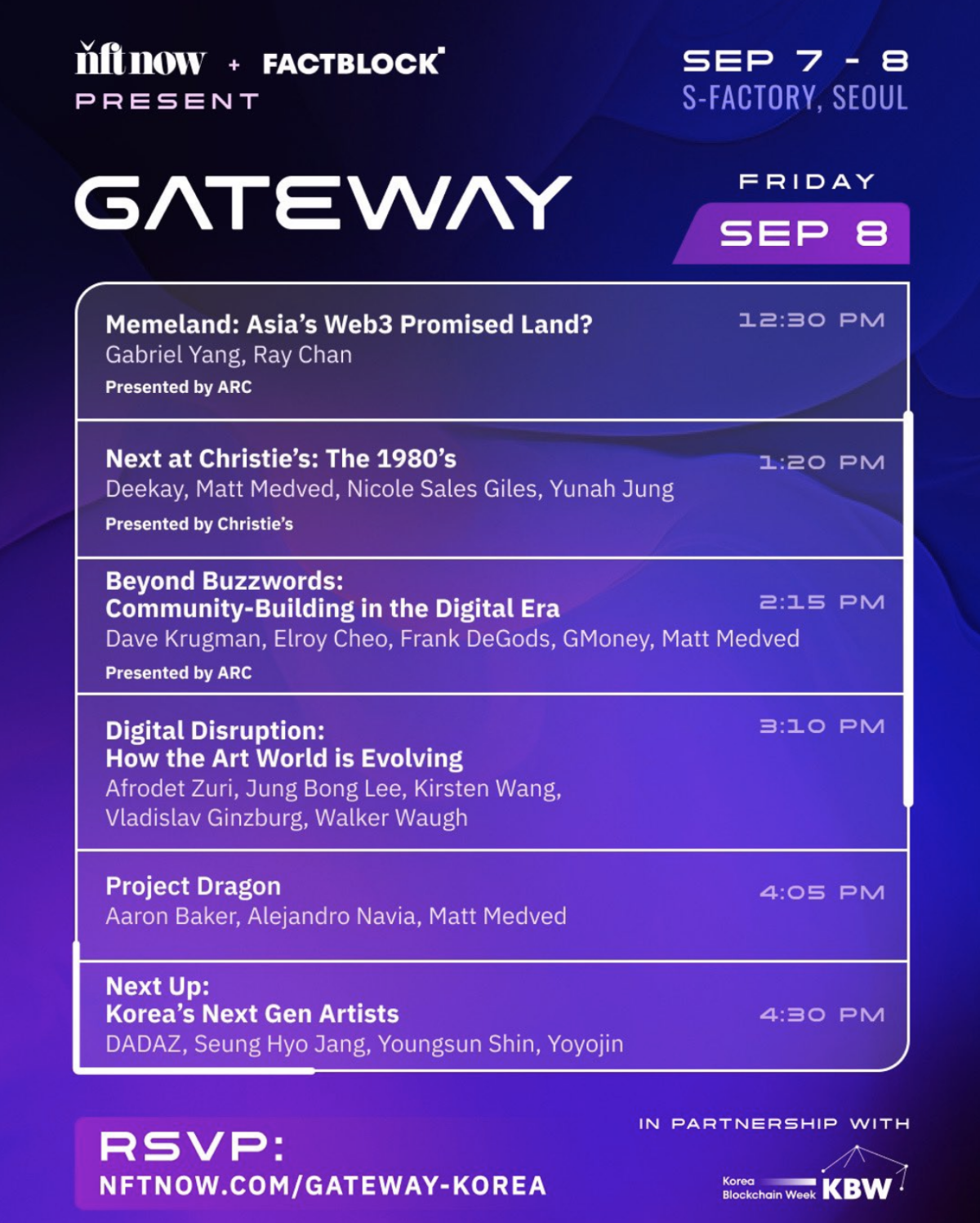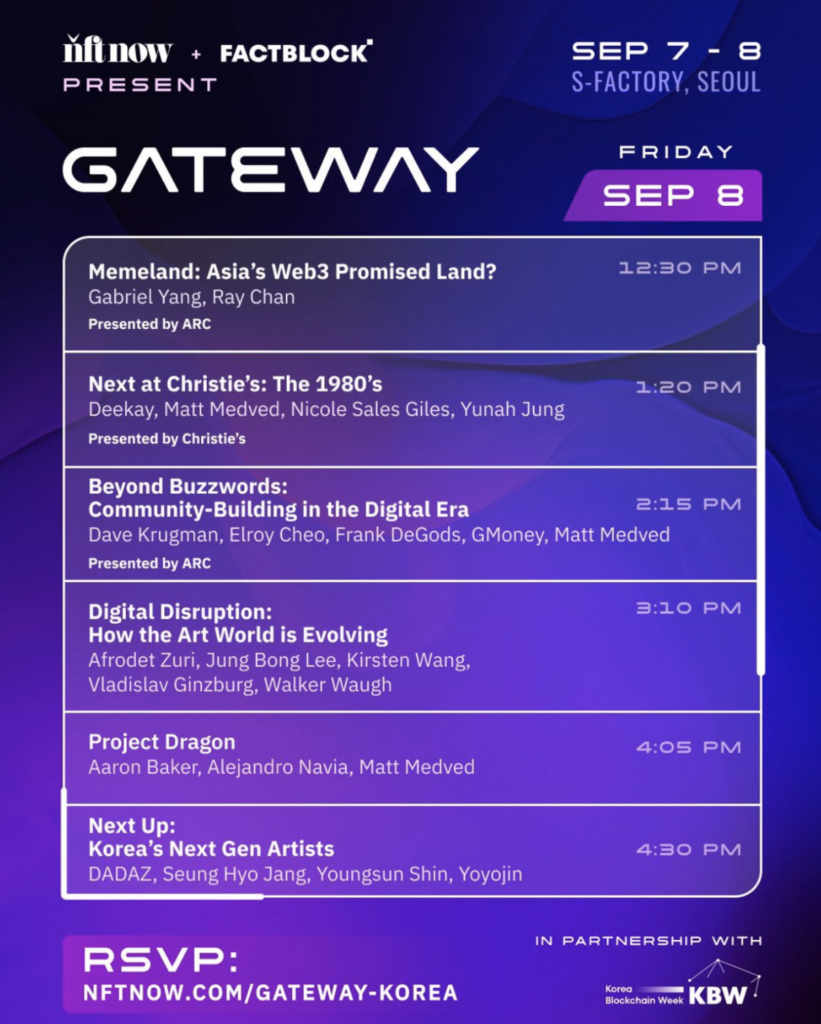In the heart of Seoul’s art scene, The Gateway: Korea has opened its doors. Participants, speakers, art lovers, critics and makers come together with a shared enthusiasm for art and innovation. Whether you can’t attend the event or you’re looking for an in-depth look, come back to this live blog for up-to-the-minute recaps, panel summaries, and behind-the-scenes insights from day two. You can view the recap of day one here.
Here’s our speaker schedule for today:

11:25 am: We are now on day two of The Gateway: Korea. The first programming day (yesterday) was a success. What is especially fascinating to me is the diverse mix of participants from both the East and West. It’s worth noting that a significant portion of those in attendance are Korean residents experiencing The Gateway for the very first time.
My colleagues and I noticed some cultural differences during the panels and lectures. It is striking that the Korean public tends to display a clear manner of attentiveness. In contrast to the enthusiastic cheers and small talk often heard in American audiences, Korean visitors tend to be quieter spectators. However, it is important to emphasize that neither approach is inherently superior to the other. The volume of an audience does not necessarily correlate with level of interest. In fact, many attendees, regardless of nationality, seem engrossed in the subject and spend a significant portion of their time taking notes during the lectures. I’m especially excited about the Christie’s panel and the Community-Building panel. Check back regularly for more updates.
12:45 PM: The panel started with Gabe Yang introducing ARC Community and his friend Ray Chan, aka 9GAGCEO. They talk about Asia as the promised land of Web3. Chan says it’s not just a Web3 trend, but a general trend. Chan says the beauty of Web3 is that people don’t care where you come from behind the dark PFP. It’s very gender neutral, country neutral. “When there’s good soil, you know Asia is good at this,” Chan said.
1:01 PM: Chan says there’s a perception that Asians work harder than other races. He says they are the ones who stay late for work and work and study the hardest in school. However, he adds that working smart is just as important as working hard. He says there are many things to learn that you can’t learn in school.
1:03 PM: Will Asia lead the next bull market? Yang asks Chan this question, but says himself that he doesn’t think it’s just Asia. Chan laughs and says, “Asia led the last bull. 70% of the miners are there. Asia has led crypto since its inception.”
1:07 PM: Chan says he has decentralized his Memeland team and his company is 100% remote. He has no office.
1:10 PM: Chan and Yang discuss remote work: its pros and cons. Chan says it’s about finding your own way and no way is better than the other.
1:11 PM: “When most companies complain that remote working reduces productivity, they dream of high productivity at work. I remember when I worked in an office I was browsing websites,” Chan said.
1:14 PM: Chan says he wants everyone to win. He says he doesn’t want to beat other projects.
1:33 PM: Matt Medved introduces the panelists and Keith Haring’s exclusive play premiering at The Gateway: Korea. He asks the panelists about Haring and what his impact has been on their style.
1:41 PM: DeeKay says Keith Haring has broken the boundaries between high art and low art. That is exactly what he wants to do as an artist, he says. “I feel like I’m carrying on his legacy through my art. I think if he had lived today he would have adapted perfectly to blockchain technology. I think we could have gotten along well.”
1:44 PM: Nicole Sales Giles adds that Haring’s motto was “Art is for everyone.” She says they try to do that at Christie’s by bridging the gap between the traditional and the new art space.
1:50 PM: “Digital art is so embedded in me,” said DeeKay. “If you’re having fun, you’ll keep doing it without even thinking about it.”
1:52 PM: Yunah Jung talks about the growing influence of the Asian market, especially in Korea and Hong Kong. She says the highest price anyone has ever paid for a Keith Haring piece is $6 million. That is the highest auction record.

